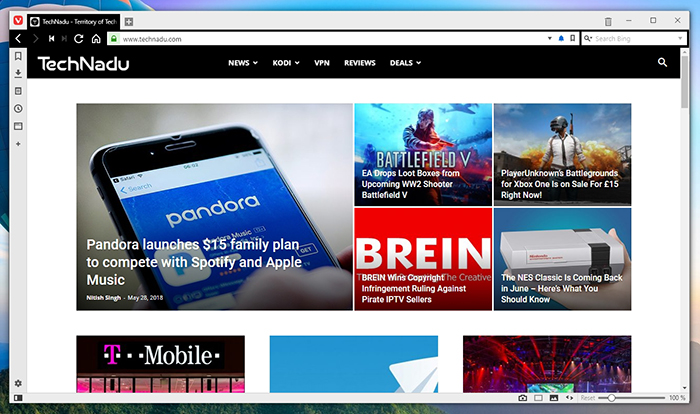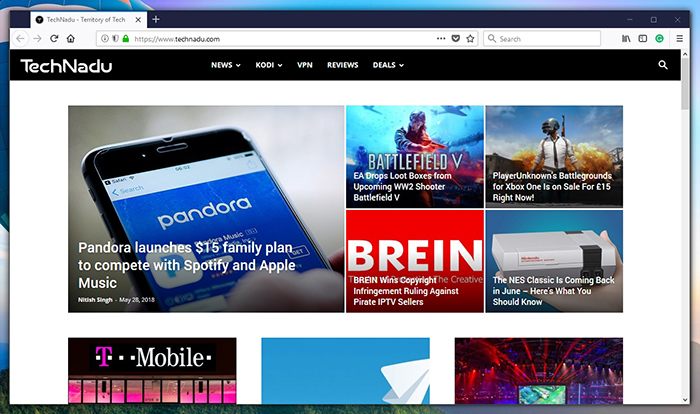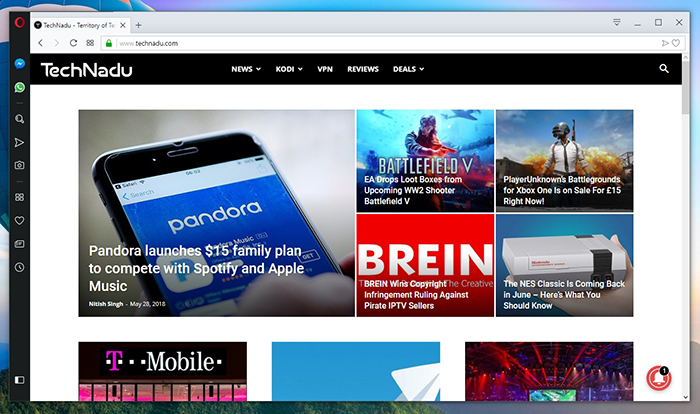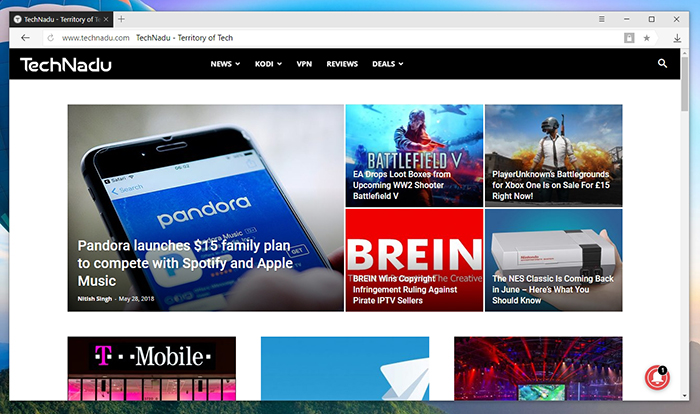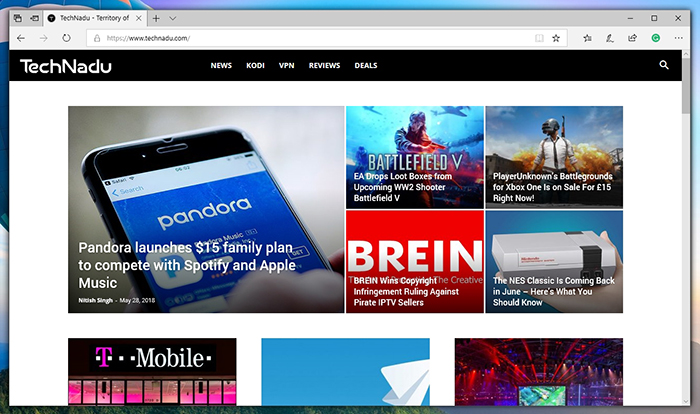
6 Best Google Chrome Alternatives For Being More Productive & Safer On The Web
Here’s is some honesty for the start – Google Chrome is the end game when it comes to Internet browsing. With close to 60% of the market share and the love of everyone between college students and Fortune 500 CEOs, this browser is here to stay – and grow. Still, this doesn't mean that there aren't any viable Google Chrome alternatives out there.
As big a success story that Chrome is, it is by no means perfect. Different people have different kinds of work on the Internet and there is an off chance that Chrome might not be the best browser for some. Thankfully, the market does not run dry as far as more Internet browsers are concerned.
Not enough people seem to know that there are Chrome alternatives with features that surpass Chrome in one way or the other. We do not mean to say that they are as solid as Chrome overall. But Chrome, as we all know, has integration with Google. So if you are in for zero loss of privacy and do not mind trying out some neat features, this one’s for you!
6 Best Google Chrome Alternatives - Top Picks!
We gave our best to provide a set of Web browsers that provide safe and reliable Web browsing - which is what their primary role is. However, take a closer look and you'll find some very interesting features that can make you more productive as well.
Option #1: Vivaldi
Vivaldi is the much-hailed product directed by Opera’s former CEO. Vivaldi is for you if you are a power user with a taste for some of the former features of Opera. The user interface of this browser uses color schemes that change depending on which webpage you are visiting. It colors blend so smoothly that you only feel the pleasantness and not the change.
The customization options with Vivaldi are crisp and varied. You can change themes, add effects, and change the position of tabs as well. Other than that, Vivaldi runs on the Chromium Web browser project. That means that most (almost all) extensions available on the Chrome Web store can be installed on Vivaldi.
You can annotate specific Web pages and do a lot with the help of mouse gestures. But the one feature that has got many Chrome users talking is Tab Hibernation. This allows you to make tabs hibernate when they are not in active use. In return, the feature saves you precious memory.
Option #2: Firefox
At one point, Mozilla’s Firefox was a more extensively used Web browser than Google Chrome itself. Even today, Firefox is an amazing browser with a number of terrific features. Besides its resource friendliness, Firefox already has several Chrome-like features. Unlike Chrome, Firefox can handle a lot of tabs without becoming lousy.
The best part about this browser is the sincerity with which it handles the privacy of its users. You get a whole bunch of customizable privacy features. All the data you have is encrypted so that you can stop anyone else on the Web from accessing it. Of course, you reveal only as much information as you want to reveal.
While Firefox is not the end game when you talk about privacy, it is definitely a cut above Chrome. When you shut down Firefox and restart it, all the tabs are kept dormant. This prevents the browser from using all its resource at once. There is an official plug-in store, which is pretty rich with extensions.
Option #3: Opera
It is difficult for any technology-based product to stay afloat for more than two decades and still be relevant. Opera has been in the frame for a long, long time now. And guess what, it is still found on people’s computers and mobile. Opera has been on an upward climb since 2013 when it decided to discard the Presto engine in favor of Blink – a Chromium project engine.
Opera is no small deal when it comes to power features. You will find a handy Turbo mode in Opera along with the usual features that you expect in a Web browser. This feature reduces the size of web pages, making them load up to 50% faster.
The Turbo mode is great when you are looking to save on data or on the occasions when the network becomes painfully slow. A new addition to Opera is the new VPN service that is embedded into the browser. With this, users can access websites that are blocked and stay afloat on public networks as well.
Option #4: Safari
While Safari is not the idealistic alternative to Google Chrome, it is the weapon of choice for Apple and Mac users. If you use an Apple computer, this is the browser that you should be using. On the home operating systems, Safari is very difficult for anyone to beat. Did we mention it works with razor-sharp speeds?
On Apple devices, Safari works faster than Firefox and Chrome. Also, it gives you are the built-in tools and features that can help you protect your privacy. While it is not the lightest piece of software there is, it is definitely not as heavy as Google's Web browser.
Even if you bought a Mac a decade ago, the latest version of Safari will work just fine. On the downside, you do not get a whole lot of customization features. But like Chrome, there are some really cool extensions that you can (and should) get.
Option #5: Yandex
The Yandex browser was first released in 2012. Since then, it has amassed a lot of praise from its steadily growing user base. The Blink-based browser has been known to provide top-of-the-league security features to its users. It might not be the best-looking browser out there but it definitely makes up with a range of utility and security features.
The security system in Yandex scans websites and files for viruses and blocks websites that it deems as fraudulent. Apart from the security features, Yandex is also accompanied with the new and techy DNSCrypt technology. The technology efficiently encrypts DNS traffic between the name servers and computers of users.
The browser automatically encrypts all traffic when you establish the connection with an open WiFi network. Plus, the browser uses Opera’s proprietary Turbo technology to load Web pages faster. Now, that is a cool example of a collaboration effort between two good Web browsers.
Option #6: Microsoft Edge
The latest browser from Microsoft, Edge, is another good alternative to Chrome if you are using Windows 10. At the moment, the browser is available for Windows only. So if you are a Mac or iOS user, you are out of luck. Edge is not as fast as Chrome but it is a whole lot better than the previous Internet Explorer versions.
On Edge, you can customize the homepage as well as the new tabs. It has a small surprise for reading fans as well. You can create a reading list to catch up with your favorite articles anytime. Plus, you can draw, write, and highlight on parts of a Web page without installing any extensions or plugins.
The best feature of Microsoft Edge is the built-in Cortana integration. For the uninitiated, Cortana is the voice-enabled virtual assistant for Microsoft that is available with Windows 10.
Final Thoughts
There are lots of places you can be on the Web and Google Chrome is one of the best vehicles you can use. However, there's no reason to limit yourself, which is why we hope you'll find our list of the best Chrome alternatives useful.
In case you'd like to spread the news, feel free to share this article online. Thanks!

